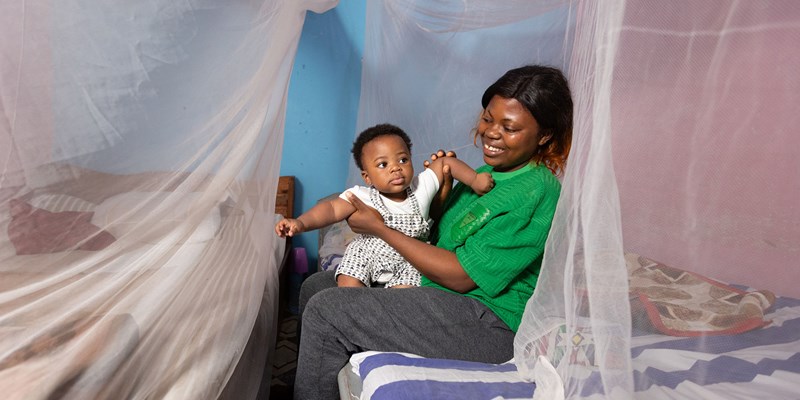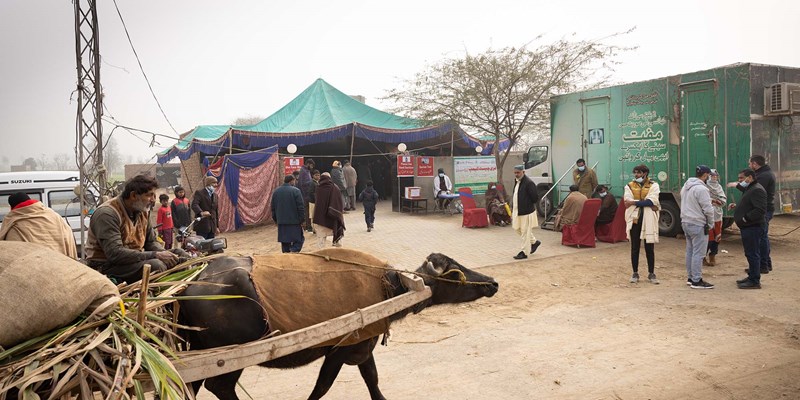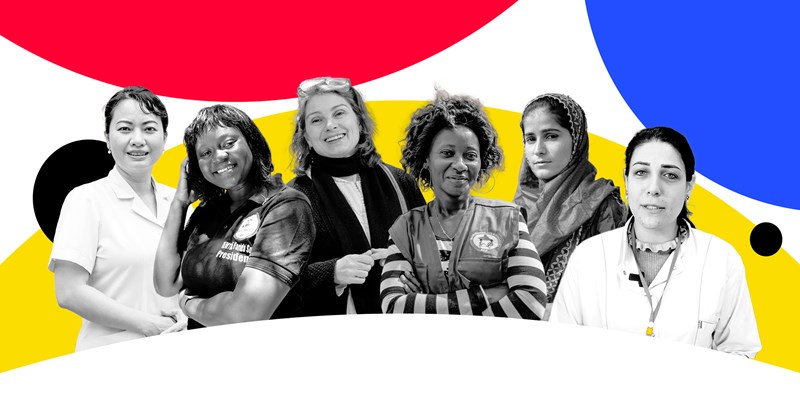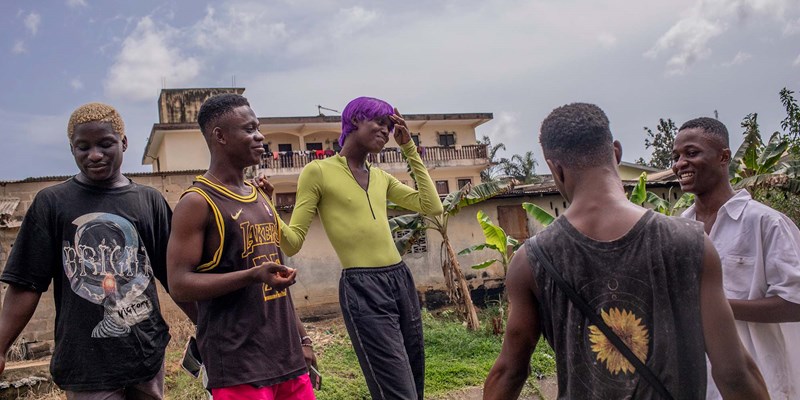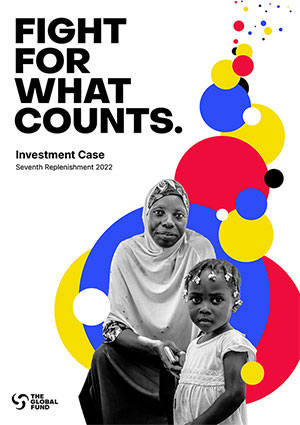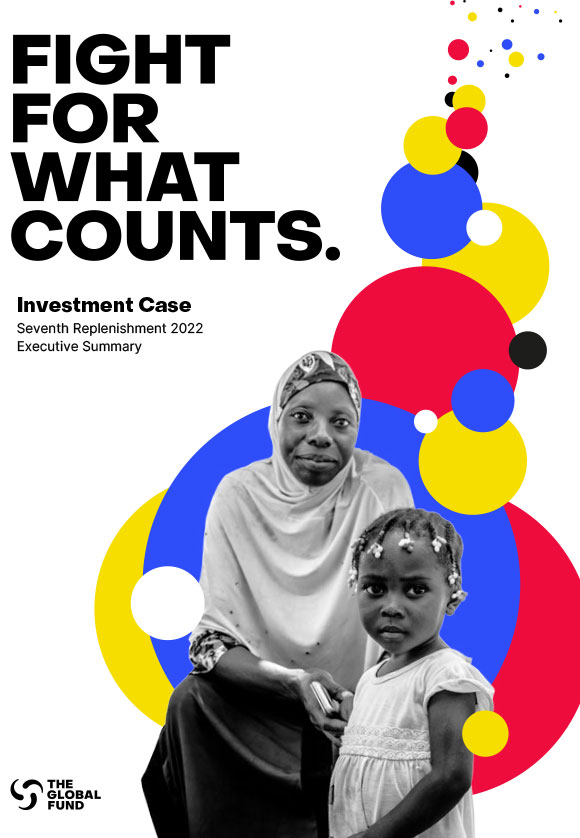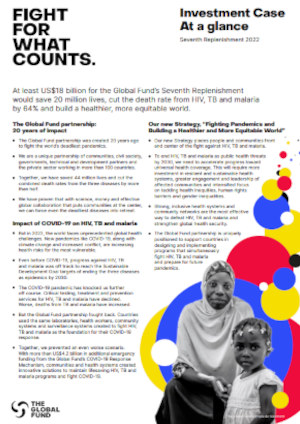Soon, nearly every family with children in Africa could have a bed net to protect against malaria
27 November 2007
46 Million Bed Nets Delivered To Families In Malaria Zones
Geneva - The Global Fund to Fight AIDS, Tuberculosis and Malaria, the world's largest international financier of the fight against malaria, today announced that programs it supports have so far delivered 46 million bed nets to families at risk of contracting malaria, a 155 percent increase over last year's result of 18 million.
With approved financing for 146 programs fighting malaria in 78 countries worth more than US$ 3.6 billion over five years, the Global Fund also provided the financing for effective drugs to treat approximately 44 million people suffering from malaria.
Insecticide-treated bed nets are one of the most cost-effective ways to prevent malaria transmission. Recently published studies show that a combined program of bed nets and treatment can reduce transmission by as much as 90 percent in areas with high coverage rates. Since insecticide-treated nets kill mosquitoes, they also help reduce malaria transmission community-wide.
"The international community is rising to the challenge of malaria. The encouraging results released today show that more people are accessing bed nets and malaria treatment than ever before. Malaria-related sickness and death are falling in a number of key countries. This is due to the hard work of the countries implementing Global Fund-supported programs and the invaluable help of technical partners such as the World Health Organization and the Roll Back Malaria Partnership," said Dr Michel Kazatchkine, Executive Director of the Global Fund. "But malaria still claims more than a million lives a year. Our challenge is to make bed nets available for everyone at risk of malaria, especially children and pregnant women, and to expand access to the latest treatment."
Ethiopia, which has two Global Fund malaria grants worth more than US$ 214 million over five years, almost quadrupled the number of bed nets delivered to people living in malaria endemic regions: from 2.5 million at the end of 2006 to 9.4 million to date. Other countries that witnessed a dramatic scale up of bed net delivery through Global Fund financing are Kenya and Rwanda with 3.3 million and 2.4 million bed nets delivered, respectively.
"These figures are very positive. Insecticide-treated bed nets are one of the key tools to prevent malaria and it is important that everybody living in malaria endemic regions has access to one," said Dr Awa Marie Coll-Seck, Executive Director of the Roll Back Malaria Partnership. "The Global Fund is fueling the engine of the global fight against malaria. We are proud of the increasing gains being made by endemic countries. This must continue."
These new results come just a few weeks after a malaria conference organized by the Bill & Melinda Gates Foundation in Seattle, where leading scientists and health experts discussed the possibility of increasing malaria prevention targets and potentially eliminating the disease as a global public health problem.
While the Global Fund provides the largest amounts of money against malaria, efforts by national governments and a number of organizations, such as UNICEF, many Red Cross or Red Crescent Societies, the Canadian government, Population Services International, the U.S. President's Malaria Initiative, the World Bank, and others, are together rapidly driving down malaria deaths in large parts of Africa leading to the optimism voiced in Seattle.
At the Global Fund Board Meeting, held in China earlier this month, the Board approved a seventh round of funding of 73 new grants worth more than US$ 1.1 billion over two years. The scope and quality of malaria proposals was especially strong, representing 38 percent of all approved proposals.
Since its creation in 2002, the Global Fund has become the dominant financer of programs to fight AIDS, TB and malaria, with approved funding of US$ 9.9 billion for 520 programs in 136 countries. It has been estimated that programs supported by the Global Fund have averted more than 2 million deaths.
New results figures for AIDS and tuberculosis interventions showing continued strong growth for the delivery of antiretroviral drugs (ARVs) and anti-TB drugs will be announced Friday, 30th November.
